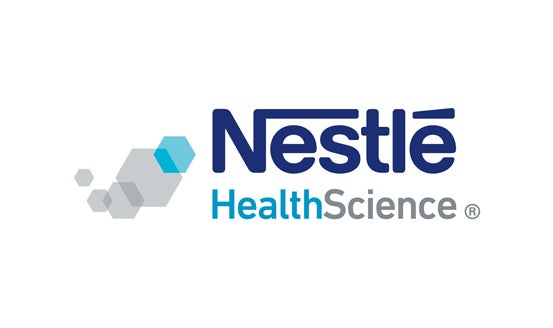
WCPGHAN 2012 - Key role for Enteral Nutrition as Prevalence of Paediatric Crohn’s Disease increases
- Exclusive enteral nutrition is an effective and well-tolerated treatment in paediatric Crohn’s disease
- Nutritional support is a crucial part of the management of Crohn’s disease to optimise disease control and improve long-term outcomes
- Nutritional therapy improves long-term bone health
Vevey, Switzerland, January 2013 – Exclusive enteral nutrition in paediatric Crohn’s disease is a highly effective, well-tolerated, anti-inflammatory treatment and contributes to mucosal healing according to experts at the recent Nestlé Nutrition Institute symposium at the 4th World Congress of Paediatric Gastroenterology, Hepatology and Nutrition (WCPGHAN) held in Taipei (Taiwan). Speakers emphasised the importance of meticulous attention to the nutritional needs of young patients with inflammatory bowel disease (IBD) as a way of improving long-term disease outcomes and not just treating the inflammatory component of the disease.
The worldwide incidence and burden of Crohn’s disease and ulcerative colitis is rising1 with studies showing that it is twice as common compared with ulcerative colitis in the paediatric age group.2 The impact of Crohn’s disease on pubertal development can be devastating, manifesting as micro-nutrient deficiencies, inadequate macro-nutrients, weight loss and impaired growth.3 The Nestlé Nutrition Institute brought together experts in paediatric Crohn’s disease to discuss Nutritional Novelties in the Management of Paediatric Crohn’s Disease.
Nutritional therapy in Crohn’s Disease – more than calorie counting
Professor Frank Ruemmele, Hôpital Necker-Enfants Malades, Paris explored the role of exclusive enteral nutrition (EEN) in Crohn’s disease as compared to pharmaceutical therapies. He explained that recent studies have correlated mucosal healing with improved long-term disease outcomes and that this is being used in newer studies as an endpoint for evaluation of efficacy. He then went on to present a recent study in children, which showed a significant improvement at week 10 in mucosal healing given exclusive EN, while those treated with steroids still had active disease.4; “Exclusive enteral nutrition is a powerful treatment option in promoting mucosal healing,” he told the audience, “It is as effective as steroids in induction therapy in children and furthermore, free from the side effects associated with pharmaceutical therapies. Whilst the precise mode of action of EEN on mucosal healing is unclear, we know that it has a direct anti-inflammatory effect and may provide long-term disease stabilisation.”
Energy and Nutrient Requirements in Crohn’s Disease – how to Ensure a Sufficient Intake for Normal Growth and Development
Dr R M Beattie, Consultant Paediatric Gastroenterologist, Southampton NHS University Hospitals Trust, UK told the audience that many young patients diagnosed with inflammatory bowel disease are so under-nourished that they actually fulfil the WHO criteria for malnutrition and that 85% of paediatric Crohn’s disease patients present with some level of nutritional impairment, which will impact on their long-term growth. Enteral nutrition, Dr Beattie explained has been found to have a beneficial effect in the short term on weight, height and other markers of nutritional status but is not suitable for all patients. However, even partial enteral nutrition leads to improved outcomes and reduced dependency on other treatments.
“Nutritional support is an important part of the management of Crohn’s disease but this should be a dynamic process. During recovery, energy needs increase and provide the opportunity to catch up on growth. Meticulous attention to nutritional needs is likely to optimise disease control and improve long-term outcomes. It may not be enough to simply treat the inflammatory component of the disease.”
Bone and Anabolic Response of Nutritional Therapy in Crohn’s Disease
Sibylle Koletzko, Professor of Paediatrics, Dr von Hauner Children’s Hospital, Munich, Germany spoke about the relationship between muscle mass and bone size in children with IBD. The relationship between muscle mass and bone size is important in children as poor nutritional intake and absorption, inflammation and the use of corticosteroids lead to muscle wasting and poor bone development. Control of the disease is vital therefore, during the adolescent years to attain peak bone mass in adulthood. Exclusive enteral nutrition (EEN) is the established first-line therapy for acute inflammation in pediatric Crohn’s disease in many European countries and importantly is not associated with the side effects of corticosteroids. In one study EEN resulted in significantly improved bone metabolism and muscle mass.5 Professor Koletzko summed up by saying, “Optimising nutrition is an important treatment option to improve long-term bone health. Partial EN will maintain this benefit.”
For more information, please consult www.nestlenutrition-institute.org
References
1. Increasing Incidence and Prevalence of the Inflammatory Bowel Diseases With Time, Based on Systematic Review. Natalie A. Molodecky, Ing Shian Soon, Doreen M. Rabi, William A. Ghali, Mollie Ferris, Greg Chernoff, Eric I. Benchimol, Remo Panaccione, Subrata Ghosh, Herman W. Barkema, Gilaad G. Kaplan. Gastroenterology. 2012;142(1):46-54. ©2012 AGA Institute.
2. Markowitz JE, Patterns of complementary and alternative medicine use in a population of pediatric patients with inflammatory bowel disease. Inflamm Bowel Dis. 2004;10(5):599-605.
3. Griffiths AM, Hugot J-P. Crohn's Disease. In: Pediatric Gastrointestinal Disease, 4th Edition. Walker A, Goulet O, Kleinman RE et al. (Eds). BC Decker, Hamilton, ON, Canada (2004).
4. Borrelli O, Cordischi L, Cirulli M, et al. Polymeric diet alone versus corticosteroids in the treatment of active pediatric Crohn's disease: a randomized controlled open-label trial. Clin Gastroenterol Hepatol 2006;4:744-53
5. Werkstetter KJ, Schatz S, Alberer M, Filipiak-Pittroff B, Koletzko S. Influence of exclusive enteral nutrition therapy on bone density and geometry in newly diagnosed paediatric Crohn’s disease patients. Submitted for publication
